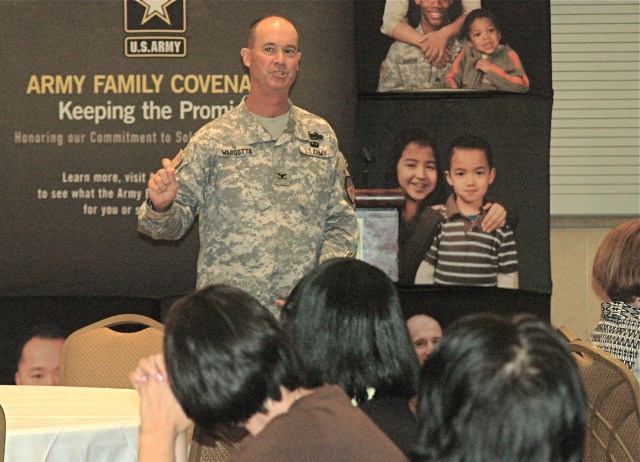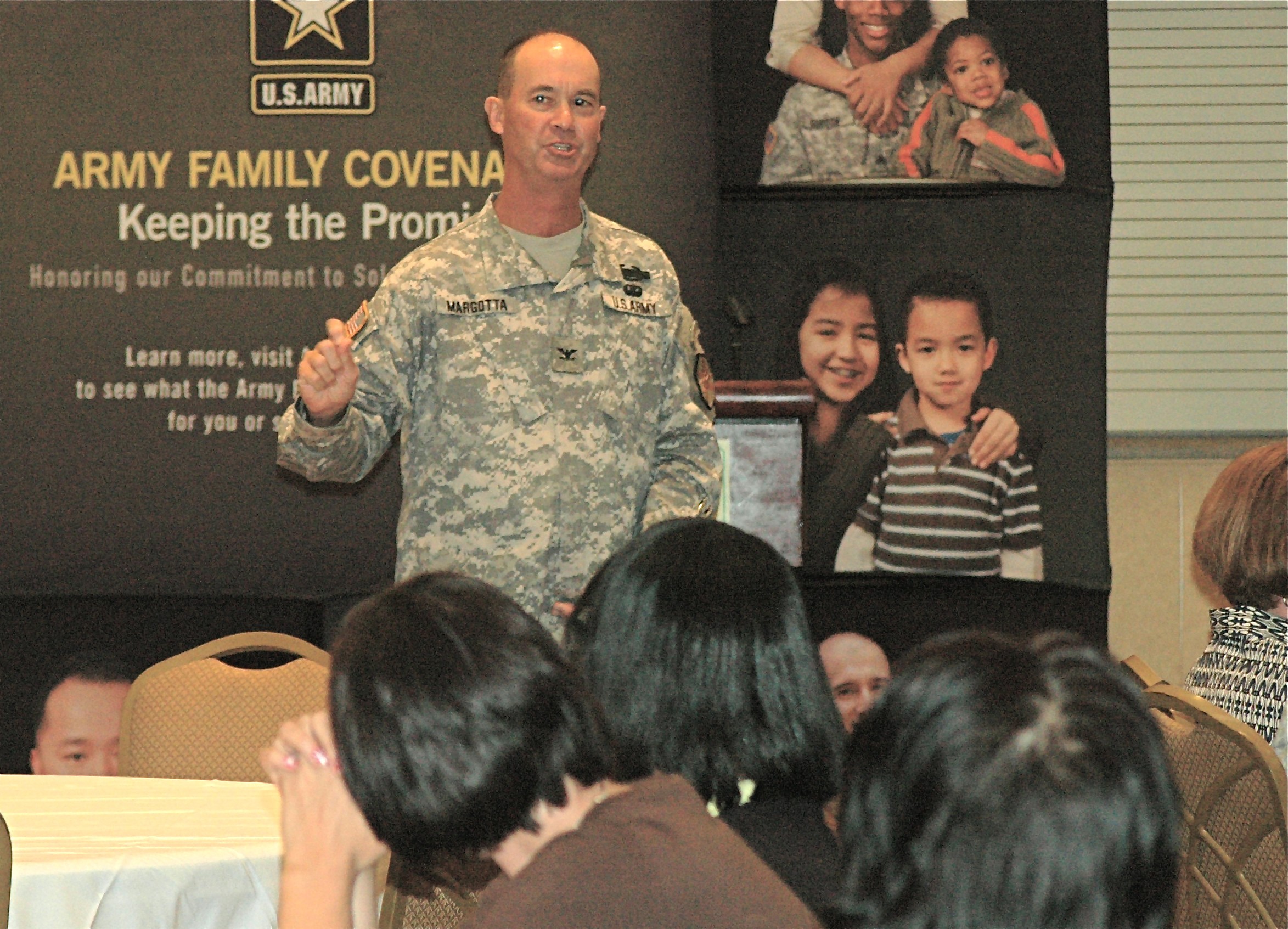Delegates address quality-of-life issues and make recommendations
SCHOFIELD BARRACKS, Hawaii - Army Family Action Plan conference delegates were encouraged to find new ways to improve the quality of life for Soldiers and family members, while being cautioned to temper expectations regarding program funding, as garrisons deal with shrinking budgets.
That was the message coming out of the 2010 AFAP Conference opening ceremony, Tuesday, at the Nehelani Banquet and Conference Center, here.
The conference, comprised of delegates representing base operations, community and family services, force support and single Soldiers, ended Thursday.
The AFAP brief-out was tied in with the re-signing of the Army Family Covenant.
Delegates were asked to address quality-of-life issues facing Army personnel and to make recommendations to senior Army leaders, including Col. Matthew Margotta, commander, U.S. Army Garrison-Hawaii, as well as subject matter experts and community leaders.
"The task that you have been given is one that should weigh heavily on your shoulders," said Tracey Clark, volunteer corps coordinator, Army Community Service. "You have the opportunity to speak for your community and decide what improvements can be made."
Clark asked those in attendance not to take their assignments lightly.
She pointed to "great changes" that have occurred since AFAP began 26 years ago, with the implementation of more than 600 Armywide initiatives.
Locally, AFAP has produced and resourced several notable programs, including additional health and fitness classes, and a bus shuttle service that transports Army family teens between installations.
"These are all things that touched either our lives or someone very close to us," Clark said.
Despite their charge, delegates were told to be mindful of the limited amount of funds available.
Already, the garrison is facing an approximate budget shortfall of $29 million, and implementing new initiatives may only come at the expense of losing existing programs.
"You have got to be realistic with your desires and your expectations," Margotta told the approximately 60 delegates, subject-matter-experts, agency supervisors and senior Army leaders in attendance. "I know you're supposed to come up with ideas on how to make the community better ... (We want you) to give us your recommendations and suggestions.
"At the same time, I would ask you to consider what things may be a little bit less of a priority, which you may want to take away.
"There's no way we can provide more services than we do right now," Margotta added. "It's a matter of taking something else and weighing it against another program."
Margotta thanked the delegates for their dedication to their jobs.
"(AFAP) does work," Margotta said. "Just keep in mind that we may not be able to do all that you ask. But we'll certainly try. That's our commitment to you."A-"A?
(Editor's Note: Additional coverage will be ran in next week's Hawaii Army Weekly, the command newspaper for U.S. Army Garrison-Hawaii.)


Social Sharing